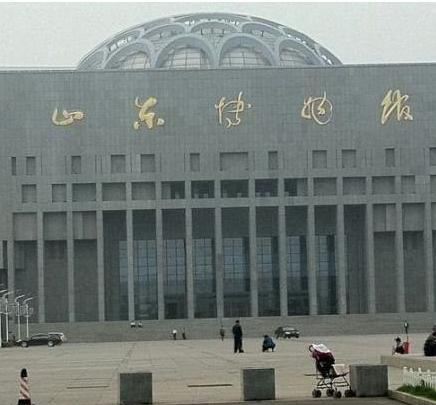On Weibo, the Chinese microblogging web site, there's an
article titled "甲骨文的呼唤" (the Call of Oracle Bone Script), where I read
我们的甲骨文三字被美国人注册成软件品牌,甲骨文字检索软件竟然也是美国人发明的
Translation: The three characters, 甲骨文 (oracle bone script), of ours, were registered as a software brand by Americans. Even 甲骨文字 (oracle bone script) search software was invented by Americans.
The author 中华古文字研发中心 is evidently annoyed at the cyber-squatting of a very Chinese name by a non-Chinese company. What's going on?
Let's put everything in the historical perspective.
* The word "oracle" dates back to probably 2000 BC according to Wikipedia, referring to "Frenzied women from whose lips the god speaks". The Chinese word for this is "神谕" (literally, god's decree).
* From the 14th to 11th century BC, the first Chinese script, 甲骨文 (literally, shell bone writing) was written on the shells of animals mainly turtles in today's Anyang, Henan Province of China.
* In the late 1800's, these shell bones with characters on them were discovered by Chinese scholars.
* In 1977, "Ellison co-founded Oracle Corporation in 1977 with Bob Miner and Ed Oates under the name Software Development Laboratories (SDL)" according to Wikipedia. "The name Oracle comes from the code name of a CIA project which the founders had all worked on". In 1982, the company was renamed to use "Oracle" in its name.
* Some time after that, the Chinese translation of Oracle Corporation and its database software names came into existence. The Chinese name chosen is "甲骨文".
Since the word "oracle" has at least two meanings when Oracle Database or the company was born, god's decree (神谕) and Chinese turtle or oracle bone script (甲骨文), which one did Larry Ellison and his friends have in mind when they named the software or company as such, or if the name was directly adopted from the CIA project they had worked on, which did the CIA project team initially have in mind? According to an Oracle FAQ page, "The word Oracle means: Prophecy or prediction; answer to a question believed to come from the gods; a statement believed to be infallible and authoritative; a shrine at which these answers are given."
So it's obvious that Mr. Ellison did not consider the second meaning of the word as the name of the company or its flagship software. In fact, it's likely that he was completely unaware of the obscure Chinese oracle bones. The Weibo article cries for Internet domain name squatting of "甲骨文" by Oracle Corporation due to the author's ignorance of the history of these events, an unfortunate Chinese translation of "Oracle" (as company or software) as "甲骨文" (oracle bone script), and possibly his lack of basic English reading skills.
Because "Oracle" (as company or software) took the meaning of god's decree, the correct Chinese name should be "神谕", not "甲骨文". I consider the current Chinese names "甲骨文公司" (Oracle Corporation) and "甲骨文数据库" (Oracle Database) to be incorrect translations. I posted a message to my Weibo and also as a reply to the article, "As an Oracle database administrator, I'd like to remind the author..." Interestingly, my reply was deleted (the author of a Weibo message can delete other people's replies). Some of my Oracle database friends responded to my message saying that "甲骨文" is a beautiful translation, that it is not a mistranslation, and that "神谕" would be terrible. Well, I told them it's a mistranslation from the linguistic or etymological point of view. A similar example is early Taiwanese translation of "Rice University" as "稻米大学", as if "Rice" was the cereal grain in this context, which would definitely disturb Mr. Rice, the founder of the school. This I blogged about before.
Let me end this blog posting with an interesting story, possibly true. The famous Chinese singer, Liu Dehua, Andy Lau by English name, once went to the countryside and saw a restaurant by the name "Liu Dehua Restaurant". Not happy with infringement of his big name, he requested to talk to the owner. An old man came out, saying "I've been called Liu Dehua all my life. Who are you?"
___________________
[Update 2014-04-05] I got to record this funny true story that just came in. My friend, a well known Oracle database expert in China, posted a message on his Weibo today:
今天收到一个妹子电话,问我,你做什么的?我莫名其妙反问,什么事。妹子说,我这里出土两片甲骨,似乎有甲骨文,能帮我鉴定下么? - 这么多年了兄弟们[泪],第一次有正宗甲骨文的业务上门啦!
Translation: Today I got a phone call from a lady asking, What do you do? Confused, I asked her, Why? She said, two 甲骨 (shell bones) were excavated here. Looks like there's 甲骨文 (oracle script). Can you help evaluate? - After so many years, my brothers [tears], for the first time we've got the authentic oracle business coming to our door!
That posting was followed by lots of joking replies!
